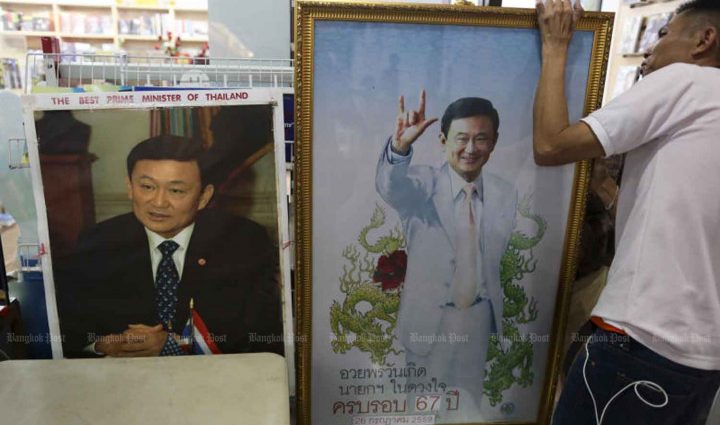Time’s up for MPs, no deal for Thaksin

Parties may propose a bill seeking to grant amnesty to convicts in politically related cases, but talks on the matter can only take place after the formation of a new parliament, according to Deputy Prime Minister Wissanu Krea-ngam.
He said it will be too late to discuss the bill now as the current parliament has only a few meetings left before its final session ends on Feb 28.
“There is nothing parliament can do about it because there is not much time left,” he said. “All it can do now is pass as many pending legislative bills as possible.”
“Even if an amnesty bill is tabled, parliament cannot put it on the agenda in time, and deliberation cannot take place,” he added. “But there is no problem if parties just bring [an amnesty proposal] up for discussion.”
Asked if fugitive former PM Thaksin Shinawatra can return to Thailand, Mr Wissanu said that Thaksin must face legal proceedings upon his return.
Thaksin fled the country in 2008, shortly before being convicted by the Supreme Court for abuse of authority in connection with the Ratchadaphisek land purchase deal.
The idea of amnesty for people charged and prosecuted in political cases has resurfaced as the election approaches. The main opposition Pheu Thai Party, with links to Thaksin, believes it can win and return to power.
During a visit to Udon Thani on Jan 15, Paetongtarn Shinawatra, Thaksin’s youngest daughter and Pheu Thai’s chief adviser on public participation and innovation, told supporters that she wants to see her father return to Thailand so he can be with his grandchildren.
The amnesty idea continued to gather more pace when Paisal Puechmongkol, former assistant to Deputy Prime Minister Prawit Wongsuwon, took to Facebook on Jan 22 and claimed that Gen Prawit was ready to push for an amnesty deal to end existing political conflicts and steer the country forward after the next poll.
Mr Paisal on Facebook said amnesties would be granted to those convicted of political offences since 2005, which may include demonstrators under the now-defunct People’s Alliance for Democracy, the United Front for Democracy against Dictatorship and the now-defunct People’s Democratic Reform Committee.
The amnesty idea has the backing of all groups, and this policy will give the Palang Pracharath Party (PPRP) leverage to become a core party in the formation of a coalition government, leaving the United Thai Nation (UTN) Party sidelined, he said.
The UTN is seen as the PPRP’s rival, with Prime Minister Prayut Chan-o-cha, the UTN’s new member, tipped to be its potential prime ministerial candidate in the next poll.
On Jan 24, deputy PPRP leader Wirach Ratanasate said the party has a policy to “put aside conflicts”, and it plans to push a bill seeking to grant amnesty to political offenders.
However, Nipit Intarasombat, a key PPRP figure, posted on Facebook the following day that if Thaksin returned to Thailand, he must serve jail terms handed by the court.
“I believe no one dares to push for an amnesty for Thaksin,” he said. “There are also several politicians and government officials convicted of corruption and imprisoned, and granting them amnesty will cause a public uproar.”
“Thaksin can only seek a royal pardon [after being imprisoned] in corruption cases in which he is convicted of, as stipulated by Section 261 of the Criminal Procedures Code,” he posted. “However, there are still several pending cases against Thaksin, and he must face trials if he returns. No one knows if he will flee the country ahead of a court ruling again.”

